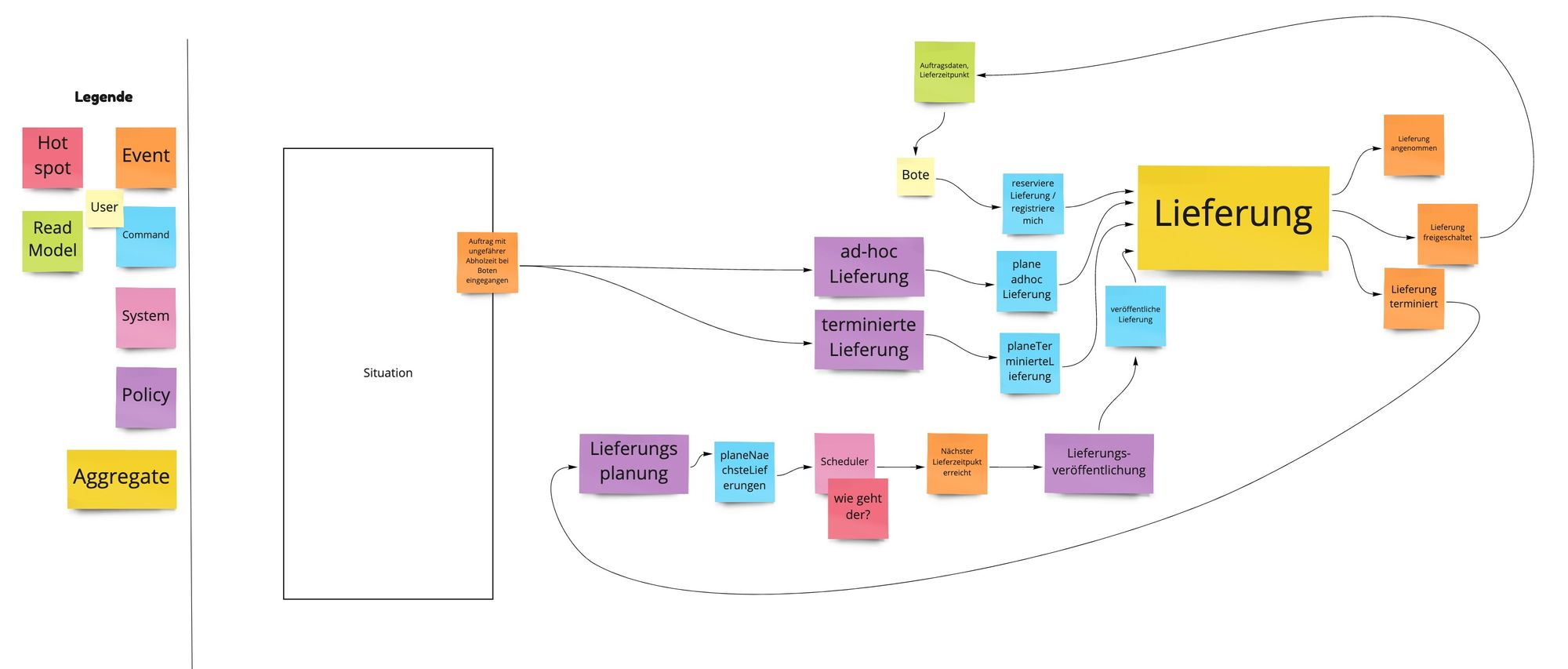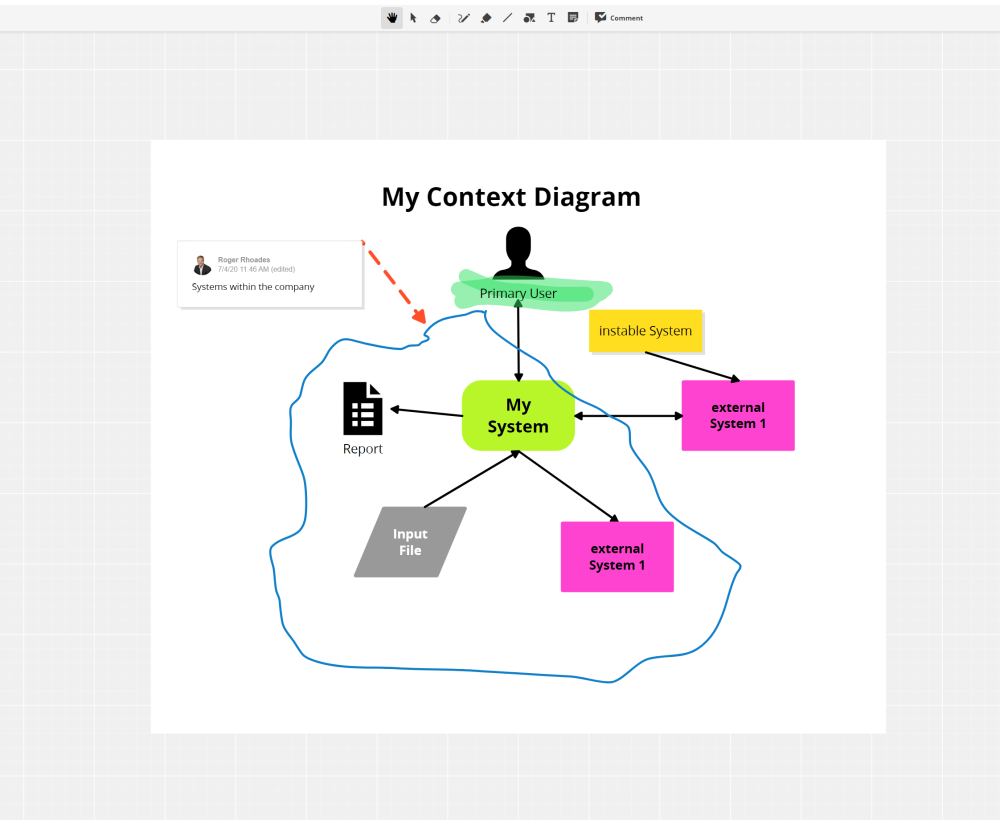iSAQB CPSA Advanced Domain-Driven Design (DDD)
Course Description
Communication between developers and subject-matter experts is critical to the success of complex software development projects. To optimize communication, it is helpful when both technical and subject-matter experts speak the same language.
In this advanced-level course you will learn how to develop a common business language to communicate with stakeholders, use the DDD approach to design your application, and interface to other applications from other domains.
The highly interactive course takes a practice-oriented approach to learn how to create a business-oriented software architecture. Throughout the course, a practice-based case study will be used to take you from requirements to code. You will experience how easy it can be to create a high-quality software design by focusing on the business domain and the Domain-Driven Design guidelines.
This course will give you a solid understanding of the DDD concepts and the confidence you need to apply this knowledge in your everyday development work.

Course content
The accredited training course is part of the Advanced Level of the iSAQB certification for software architects (CPSA-A) and is based on the corresponding iSAQB “Domain-Driven Design (DDD)” curriculum.
After completing this course, you will be familiar with the following topics:
- Domains, modules and ubiquitous language
- Module, entity, value object, aggregates, service, domain events, factory, repository
- The modelling approach
- Supporting domain experts, collaboration approaches for creating models
- From the model to the implementation
- Relationship between the domain models and the code, business classes, technically motivated building blocks, language and code quality
- The model in the application architecture
- Hexagonal Architecture, command-query responsibility segregation, layered architecture
- Model context and interfaces
- Bounded context, context map, shared kernel, domain events
- Maintaining the consistency of the models
- Anti-corruption layer, continuous integration, separate ways
Certification
This training course is part of the Advanced Level Program of iSAQB. By attending this training course, you will receive 20 credit points in the “Methodology” competency area and 10 credit points in the “Communication” competency areas, which can be credited toward obtaining a Certified Professional Software Architect (CPSA) certificate.
Target Audience
This course is aimed at software developers and architects
Prerequisites
Participants should have the following knowledge and/or experience:
- Concepts of object-oriented software development
- Experience in the modeling of software architectures
Additional knowledge in the following areas is helpful:
- Agile software development approaches, such as Scrum, Kanban, XP, etc.
- Experience working with subject-matter experts
- Experience in IT projects or in product development
Knowledge of a specific technology or programming language is not required. Knowledge of UML is helpful, but not essential.
Detailed course content
This accredited training is based on the current ISAQB® syllabus for the iSAQB module Domain-Driven Design (DDD).
Basic concepts: Domain, Model, and Ubiquitous Language
- Relationships between domains, software applications and models
- The role of business language in the construction of a “ubiquitous” language
- The building blocks of Domain-Driven Design: value object, entity, association, modules, service, aggregate, factory, repository, domain event
- Interrelationships between building blocks
The modelling approach
- The importance of domain experts in DDD
- Communicating with domain experts
- Modeling techniques for collaborating with domain experts: use cases, user stories, domain events, object and class models, glossaries
- Interviews and observation as means of modeling
- Event Storming workshops
From the model to the implementation
- Extending the domain model with technically motivated DDD building blocks
- Modelling interfaces for domain-oriented classes
- Interactions between an implementation and its domain model
The model in the application architecture
- Selected architectural styles and the domain model: hexagonal style, layers, CQRS style
- DDD and other methods (e.g. BDD, WAM)
Model contexts
- Symptoms of models that are too large
- Advantages and disadvantages of models used across teams
- Bounded Contexts and Context Mapping
- Bounded Context integration patterns such as shared kernel, customer/supplier, anti-corruption layer, etc.
Maintaining model consistency
- Consistency slowly degrades over time
- Continuous Integration to increase consistency
- Isolate the domain model from external influences
- Interfacing with bounded contexts
Benefits of attending an Albion iSAQB training course
- Highly experienced and accredited trainer:
- The accredited trainer is an active member of the iSAQB organization and has several years of experience and extensive knowledge in the field of software architecture management.
- Interactive, practice-based training:
- Participants experience an interactive training course with practice-based exercises and case studies that, according to former participants, reinforce their understanding of what they have learned.
- The theoretical content is supplemented with the trainer's practical experience to ensure course participants not only understand the relevant methods, but also the real-world challenges of their implementation.
- Active participation and discussions are explicitly encouraged.
- Industry-standard certifications:
- Industry-standard certification and recognition of expertise.
Benefits of the Albion live online training courses
Overview
Albion is known for its interactive training courses with a workshop character. Whether in-person or live online, Albion training courses encourage the active participation of course participants in discussions and group exercises.
By using the latest online collaboration tools, such as online whiteboards, you will experience a classroom-like environment. During the live online training, participants collaborate to perform practice-oriented exercises and case studies that lead to a deeper understanding of the course material.

Benefits of live online training courses
- Lower price
- Lower price for the live online training course compared to the corresponding classroom training.
- No travel or hotel costs
- Efficient use of your time and money.
- Compliance with mandated travel restrictions
- You can conveniently participate from any location without having to travel.
- Face-to-face discussions
- The same opportunities for asking questions and discussing topics as in a classroom training.
- As with classroom training, active participation of the participants is desired.
- Participant collaboration
- Participants can pose questions to other participants and to the trainer 24 hours a day via an online chat during and after the course (e.g., to discuss sample test questions, current project challenges, etc.).
Prerequisites for live online training courses
- Computer with a stable and fast Internet connection that supports continual video transmission.
- Suitable webcam.
- Headset instead of the computer microphone to reduce ambient noise.
- Modern web browser with good Javascript support.
- A sufficiently large monitor to view the course slides, a whiteboard and other participants. Additional optional recommendations include a second monitor and a touchscreen with a pen, for example, to draw on a virtual whiteboard.
- Administration rights may be required to install software, e.g., Microsoft-Teams, Exam-Software.
- The applications are also available via a web browser; however, these have limited functionality.
- Participant attendance is mandatory to receive the course participation confirmation.
- Only one person per computer, no sharing of computers.
- Please ensure that you can participate undisturbed from colleagues, family members, pets, etc.
Trainer
Matthias Bohlen
 Matthias Bohlen is an accredited iSAQB trainer for software architecture as well as a practicing software architect, IT consultant, coach, and Lean/Kanban expert.
Matthias Bohlen is an accredited iSAQB trainer for software architecture as well as a practicing software architect, IT consultant, coach, and Lean/Kanban expert.
He has a unique way of explaining complicated topics simply, and breaking them down into comprehensible steps.
In addition, he regularly lectures at conferences and writes for trade journals. He was formerly a member of the editorial team of the OBJECT spectrum.
Registration
Course Information
Duration
3 or 4 days, 9 a.m. to 5 p.m. CET
Method
onsite or online
Certification
20 methodology and 10 communication credit points for an iSAQB CPSA-Advanced certificate
Meal voucher
for onsite courses
Standard-Price
from 2,050 EUR, excl. VAT.
10% early bird discount *
Course Dates: iSAQB CPSA-Advanced Domain-Driven Design (DDD)
This courses may be offered in German or English.
| Course | Language | Start Date | End Date | Location | Price | Register |
|---|---|---|---|---|---|---|
| iSAQB Domain-Driven Design (DDD) | German | 24.03.2026 | 26.03.2026 | Live Online | 2.025 EUR (10% Discount) | |
| iSAQB Domain-Driven Design (DDD) | German | 28.07.2026 | 30.07.2026 | Cologne | 2.115 EUR (10% Discount) | |
| iSAQB Domain-Driven Design (DDD) | German | 25.08.2026 | 27.08.2026 | Live Online | 2.025 EUR (10% Discount) | |
| iSAQB Domain-Driven Design (DDD) | English | 22.09.2026 | 24.09.2026 | Live Online | 2.025 EUR (10% Discount) | |
| iSAQB Domain-Driven Design (DDD) | German | 13.10.2026 | 15.10.2026 | Cologne | 2.115 EUR (10% Discount) | |
| iSAQB Domain-Driven Design (DDD) | English | 01.12.2026 | 03.12.2026 | Munich | 2.115 EUR (10% Discount) |
* All prices are exclusive of VAT.
The early booking discount of 10% applies to the first four registrations which must be received at least six weeks before the course starts.
The certification guarantee is included in the price.
The certification guarantee and the early bird discount apply only to courses offered directly by Albion (not by partner companies).
Interne und kundenspezifische Schulungskurse und Workshops
In-house & Custom Training Courses and Workshops
Gerne unterbreiten wir Ihnen Angebote für interne und kundenspezifische Schulungen.
